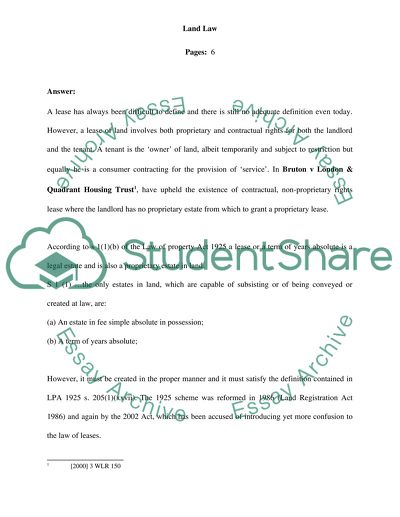Cite this document
(“Fundamentals of Land Law: Lease of Land Essay Example | Topics and Well Written Essays - 1500 words”, n.d.)
Fundamentals of Land Law: Lease of Land Essay Example | Topics and Well Written Essays - 1500 words. Retrieved from https://studentshare.org/law/1506591-land-law-essay
Fundamentals of Land Law: Lease of Land Essay Example | Topics and Well Written Essays - 1500 words. Retrieved from https://studentshare.org/law/1506591-land-law-essay
(Fundamentals of Land Law: Lease of Land Essay Example | Topics and Well Written Essays - 1500 Words)
Fundamentals of Land Law: Lease of Land Essay Example | Topics and Well Written Essays - 1500 Words. https://studentshare.org/law/1506591-land-law-essay.
Fundamentals of Land Law: Lease of Land Essay Example | Topics and Well Written Essays - 1500 Words. https://studentshare.org/law/1506591-land-law-essay.
“Fundamentals of Land Law: Lease of Land Essay Example | Topics and Well Written Essays - 1500 Words”, n.d. https://studentshare.org/law/1506591-land-law-essay.


